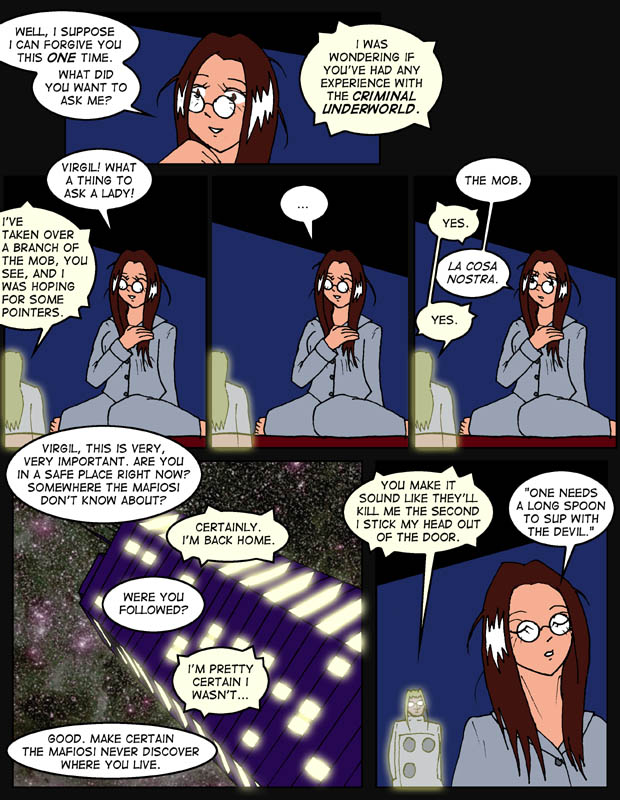
| ||
|
(Jon sez:)  NASA has opened bids for a contractor to
help research
trapping antiprotons and using them for spacecraft propulsion. Research
is ongoing
into the feasibility of a space
elevator. Sadly, the NASA Breakthrough Propulsion Physics
budget was completely killed, but that won't stop the march of science.
NASA has opened bids for a contractor to
help research
trapping antiprotons and using them for spacecraft propulsion. Research
is ongoing
into the feasibility of a space
elevator. Sadly, the NASA Breakthrough Propulsion Physics
budget was completely killed, but that won't stop the march of science.
We get letters: Sarah Turi writes in to ask what language Doctor Juruna is speaking when she's not using English, and guesses it to be Portugese. She's absolutely correct. |
(Mark sez:)  It makes perfect sense to kill the Breakthrough Propulsion Physics Program, of course. After all, it's not like space technology that once seemed like useless showboating has ever created new economic opportunity, saved lives by offering early warnings of threats that used to surprise us, allowed a country to prevail in war, or for that matter enhanced the cause of world peace. Really, why waste our money on this Buck Rogers nonsense?
It makes perfect sense to kill the Breakthrough Propulsion Physics Program, of course. After all, it's not like space technology that once seemed like useless showboating has ever created new economic opportunity, saved lives by offering early warnings of threats that used to surprise us, allowed a country to prevail in war, or for that matter enhanced the cause of world peace. Really, why waste our money on this Buck Rogers nonsense?
Longtime reader Nelson Pavlosky wrote in recently to suggest that one of the themes in MoS is the "Singularity" concept first described by SF author Vernor Vinge, where accelerating technological and societal change combine to create a point beyond which history will be incomprehensible to us. He suggested that Mars is in some ways a post-Singularity culture, whose group mind is difficult for "normal" folks like Benjamin to comprehend and whose ability to advance science (taking all of a long weekend to conceive of, develop, and put into service a countermeasure for the Solar Navy's decoherence cannon, for example) puts it in an entirely different class from our own society: not just present-day humans with fusion-powered toasters, but something completely new. Comrade Pavlosky is of course completely right. Vinge's original article on the singularity can be read online, and if you have a tolerance for techno-utopian nonsense you can read a lot more here. One note of warning: The Singularity concept tends to attract writers with political axes to grind, if only because they figure once the Singularity happens there'll be technology advanced enough to make their particular loony-tunes economic theories work. It's best not to believe anything said on the topic too strongly; the Singularity is by definition unknowable, after all. But at least as a background concept for science fiction stories it can't be beat. |
|